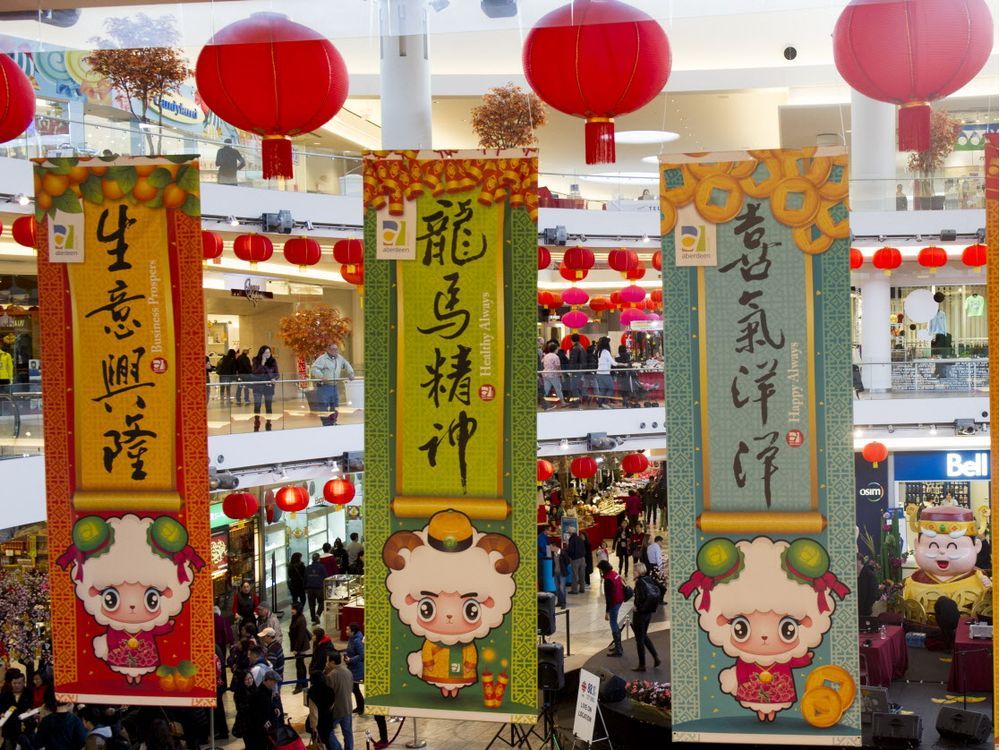Chinese 'ethnic economies'
alive and well in Metro Vancouver
alive and well in Metro Vancouver

A Scandinavian restaurant wants to hire a Scandinavian server. Vietnamese immigrants specialize in nail salons from New York City to Burnaby. South Asians tend to predominate in Metro Vancouver’s trucking and taxi industries.
Welcome to the realm of “ethnic economies,” an umbrella term for an expanding phenomenon in North America and Europe in which informal economies, from small to vast, are built and sustained by certain immigrant and ethnic groups.
Ethnic economies don’t receive much attention in the West. And the few scholars who are interested usually portray them as morally neutral. While some business leaders rave that ethnic economies are wonderfully positive, since they’re based on the affinity that can exist between people of the same ethnicity and language, others raise questions about workplace exclusion.
In highly diverse Metro Vancouver, it is ethnic Chinese economies that are beginning to draw attention. News stories are emerging about a Chinese housing market, Chinese signs on retail outlets, Chinese-specific hiring practices, Chinese malls (there are more than 100 in Canada), a Chinese rental market and Chinese ride-for-hire programs, many of which are exclusive to ethnic Chinese.
A new play, which delves into ethnic economies, is also being performed this month in Vancouver at The Cultch. It’s titled ‘No Foreigners.” Created by playwright David Yee, who is of mixed Chinese and white ancestry, the play was inspired by his experience in a Chinese mall in Richmond with a luxury-bag store salesperson who would not sell him anything, saying: “No foreigners.” By which she meant: “No Caucasians.”
Ethnic economies, which can be worth billions of dollars, are by no means limited to Chinese populations. In their book, Ethnic Economies, scholars Ivan Light and Steven Gold explore vibrant Cuban commercial hubs in Miami, sophisticated South Asian financial networks in East Africa and how well-off Indian immigrants have built a major stake in North America’s hotel sector.
Ethnic economies revolve around the kind of trust, which scholars call “social capital,” that can exist between people of the same ethno-cultural and linguistic backgrounds. They are often lubricated by cash transactions and unpaid family members. Some make up part of the 40 per cent of the North American labour force market that Light and Gold maintain “takes place outside the mainstream economy.”
RELATED
A few ethical and legal issues have been raised about ethnic economies in North America.
For instance, it’s normally against the law for larger companies, such as those with more than 15 employees, to hire someone based on their ethnic heritage. So in big Canadian cities like Toronto and Vancouver, where people of colour make up more than half the population, ethnic economies pose a special challenge for all companies, not only those run by Caucasians.
The moral issues associated with ethnic economies are complex, however. Some business ethicists say people have a right to exclude certain people from their organizations — maintaining, for instance, there is little wrong with a women’s-only organization.
The owner of this Richmond outlet eventually apologized for his help-wanted sign seeking a “Chinese sales person.”
It is also not necessarily immoral, say some ethicists, when businesses and governments have certain language requirements of employees. In addition, most people around the world, according to polls, say it is not racist for anyone to try to protect one’s language or culture.
Albert Lo, head of the Canadian Race Relations Foundation, says the subject of ethnic economies can be “divisive.” But he maintains it’s crucial to keep an eye out for when an employer who insists on a language requirement for an employee might actually be using it as a cover for ethnic discrimination.
So it is difficult to know how to judge some of the ethnic-economy trends that have been emerging in Metro Vancouver.
B.C. media outlets, for instance, continue to report on how Mandarin-only real estate marketing in Richmond and Vancouver freezes out non-Mandarin speakers (including those who only understand Cantonese). Some resent being excluded from the segment of Metro Vancouver’s hyper-active real estate market that is being fuelled by buyers from East Asia.
Several unlicensed Chinese-only ride-for-hire services have started in Richmond and in other parts of Metro Vancouver. One ethnic Chinese journalist, who was raised in Canada, reported he went on assignment in Richmond to hire a ride-for-hire car and was told by the driver he does not pick up “Westerners.”
Asian-only rental ads are also appearing in Metro Vancouver. In Burnaby, a Chinese landlord posted an “Asian only” rental ad, because he didn’t want white tenants. He was worried they would be party animals. Such exclusionary ads are common on Craigslist, even as human rights officials say it’s illegal to discriminate against a potential renter based on their ethnicity.
A Richmond furniture store last year posted a help wanted sign for a “Chinese sales person.” After the sign drew media attention, the owner apologized. But many business owners in Metro Vancouver, particularly those who run Chinese restaurants, are openly lobbying for the federal government to let them bring in temporary foreign workers and immigrants who are able to communicate in Chinese.
This is not to mention an underground Chinese food market, operating out of the trunks of vehicles, that has recently opened across Metro Vancouver, particularly in Richmond. It promotes its services through the food-sharing website Weee! and WeChat, a popular Chinese-language messaging app.
Even though ethnic economies are rarely discussed in the Western media, it’s clear they’re on the rise in welcoming North America and Europe — and will continue to grow. Since they raise so many ethical, legal and cultural issues, including about integration and exclusivity, principles near to the heart of most Canadians, it seems they might be worth more public attention.
Comments
Comments










No comments:
Post a Comment
Comments always welcome!